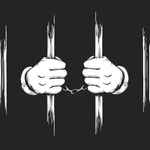'In a world of illegality, the people with the nastiest characters prevail'
Amsterdam Law School
20 April 2024

When Jan Meeus is asked in the NRC newsroom about the vulnerability of the criminal justice system, one case comes up instantly. 'There is a journalist here who covered the Marengo trial. You can see the participants' vulnerability in this case. A family member, the lawyer, and the confidant of the key witness are no longer alive, and some colleagues in the press need protection.'
As a crime reporter, he can relate. 'Some basic measures have been taken for my safety. I can travel freely - in that sense, I am free - but cameras are hanging on the facade of my house. By now, I live as if it has always been that way, but when that happened, I found it very intrusive. You never think about safety and vulnerability otherwise. But when you need cameras for safety, it makes you aware of your vulnerability.'

We are a decent society, aren't we? But then, the brother of a key witness is murdered.
Naïve about crime
Meeus also sees this burgeoning awareness in the Marengo trial. 'For a long time, people did not want to think about vulnerability because "We are a decent society, aren't we?". But then, the brother of a key witness is murdered. We now know that the family of the key witness had already warned they were not safe, but the authorities didn't take that seriously. You often see that this kind of violence must happen first before people do.'
'Actually, it took the murder of lawyer Derk Wiersum after that for people to wake up. I can only interpret that as a form of discrimination. The brother of the key witness was someone from a certain milieu with a Moroccan background, and Derk Wiersum was "one of us". It took a long time before the alarm bells went off. However, there is still a certain naiveté regarding organised crime.'

The Netherlands is attractive to criminals because the penalties are relatively low and the prisons relatively pleasant
Intensified violence
Violence in organised crime could escalate quickly, Meeus found. 'We don't know if the violence surrounding the Margeno trial is a foreboding of the new normal, but I don't believe it will return to how it was. The ferocity of this case is an expression of the high stakes in the underworld. In my experience, many criminals do not pursue these forms of violence because they realise it attracts a lot of attention. But in a world of illegality, the people with the nastiest characters prevail. After all, there is no underworld judge. That means that even the people who don't want to feel forced to use more damaging forms of violence. Law-obeying citizens are victimised as well. Given the enormous stakes, I don't think that will change.'
Cocaine smuggling
What are those big stakes? A lot of money, Meeus clarifies. 'Cocaine smuggling in the Netherlands has a volume of between 15 and 30 billion euros. The cocaine that arrives at our ports comes from Latin America. As a result, the criminal conventions from countries like Venezuela and Colombia are starting to be found here as well.’ To paint a picture: 'A journalist shot dead is nothing special in those countries. The Netherlands is currently attractive to criminals because the penalties are relatively low and the prisons relatively pleasant. But that will change as the level of violence here increases. Therefore, I would think that, if you come from Latin America, you wouldn’t want to "pollute" the Netherlands with your behaviour. But that's upper-world rationality. The question is whether people in the criminal milieu also think like that.'

'I did think when the cameras were placed near my house "if I had known, I would have made a different choice."
Freedom of press
Increasing violence means that working as a crime reporter is not without risks. So why continue anyway? 'I did think when the cameras were placed near my house "if I had known, I would have made a different choice." It's a complicated issue. But free journalism means that my colleagues and I decide what we write about. If I don't do that because of imminent danger, that goes against the core of what journalism is about. That's how it feels to me. I am restricted by the norms and values of journalism and not by a crook. I did learn from working with prosecutors as well as criminals that you have to apply the same rules to people: you have to be open about your publications and shine a light on both sides of the story. My experience is that you can then often practice good journalism.’
But there are limits. In Taghi's trial, Meeus, in consultation with his newspaper, decided not to publish everything because otherwise, he would be too much at risk. 'The moment the threat becomes so big that I need personal security, I’m inclined to say I won’t do it.’